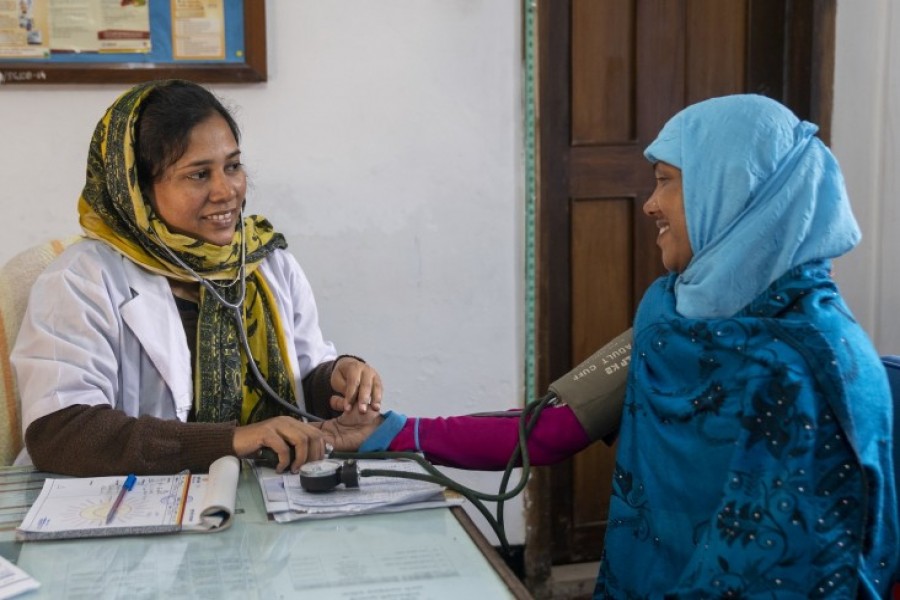Not all countries have the ability and willingness to bring their people within the ambit of their basic health services. It involves determining the beneficiaries of a country's health policy; the health budget etc. and the services extended to its citizens. A newly launched health-related index, called the 'Health Inclusivity Index 2022' has placed Bangladesh at the lowest position among the 40 countries under its purview. The index, first of its kind, measures progress of countries in extending the provisions of good physical, mental and social health for all.
Given the wobbly state prevailing in the country's health sector, the poor place assigned to Bangladesh comes as a natural corollary. Despite the tolerably efficient management of the 2-year corona pandemic, coupled with vaccination programmes, the country, ruefully, lags behind many others in meeting the basic health needs. Bangladesh has secured 30.8 points on a scale of 100 points as revealed by the UK-based The Economist Impact in its global report on October 11. Haleon, a British multinational consumer healthcare company, backed it. The index ranked the UK at the top with 90.8 points. The average score for the lower-middle income countries like Bangladesh, Philippines, Ukraine, Vietnam and India has been found at 54.1 points. The index has shown the country in a position alongside Algeria, Egypt, Honduras and India. The countries demonstrated their 'poorest health inclusivity' scores.
In the modern health-related indices, the imperative of health inclusivity deserves a premier place by its own right. 'Inclusivity' in any national sector denotes a concept that advocates inclusion of all eligible persons in that facility. Inclusivity in food consumption, opportunities for education or movement is a citizen's basic right. Likewise, the health inclusivity focuses on the process of removing personal, social, cultural and political impediments that stand in the way of individuals and communities from experiencing good physical and mental health, and a 'life fully realised'. To many disgruntled people, especially those who are frequently deprived of the health inclusivity, view these lofty words as mere exercises in inanity. Bangladesh is one of these countries which avoid the notion of 'well-being' in their national health strategies. It will make many feel upbeat to see that the Economist Impact has graded the countries across three key areas or domains such as Health in Society, Inclusive Health Systems, and People and Community Empowerment.
In theory the above three domains contain indicators meant for assessing how highly a nation values the health of its people, and whether it considers health across all the policies of the government. But the ground reality in the lower-middle-income countries like Bangladesh points to a situation in which a formidably large segment of people, especially the vulnerable, continue to remain deprived of the basic healthcare services. In the case of Bangladesh, there is a litany of shortcomings plaguing the healthcare system. Those range from scourges like wilful absence from duty by the medical professionals, insufficiency of emergency medicines and primary-stage appliances like syringe at rural healthcare centres, a lack of facilities for common surgeries to malpractice in fund management. Overcoming the systemic loopholes and attaining health inclusivity may not be a big challenge. What the country needs now is a firm commitment to put in efforts to lift it from the present 30.8 points on the 100-point scale.


